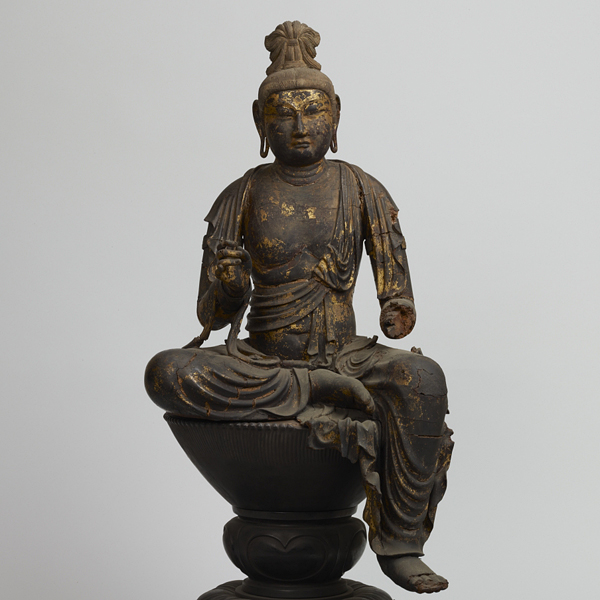Japanese Gallery (Honkan) Room 14
May 17, 2022 (Tue) - July 10, 2022 (Sun)
In the 6th century, ritual tools, sacred texts, and sculptures of deities were introduced to Japan together with Buddhism. Soon after, people in Japan also began making these sculptures, which portray deities with golden halos and other sacred traits. The techniques and artistic styles of these sculptures, however, transformed over time, reflecting the changing tastes and beliefs of the people who made them.
Tokyo National Museum, which is celebrating its 150th anniversary, is home to a wide variety of Buddhist sculptures, some part of the Museum’ s permanent collection and others on long-term loan. This exhibition presents a brief history of Japan' s Buddhist sculpture through works embodying the trends of their respective times.

